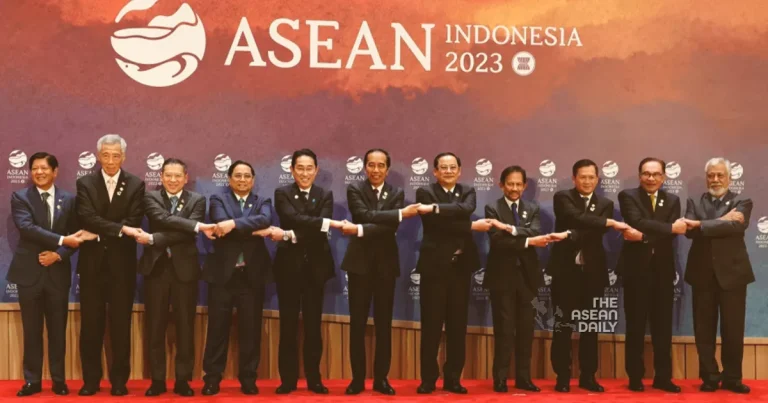8-7-2024 (JAKARTA) Recent remarks by prominent scholars from China and Indonesia calling for a heightened role for ASEAN as a “super-connector” between major powers in East Asia have aligned with the foreign policy vision of Indonesia’s president-elect, Prabowo Subianto. Prabowo has expressed interest in broadening the country’s traditionally ASEAN-centric foreign policy to encompass a wider “East Asia” outlook.
At the launch event of Prasetiya Mulya University’s Centre for East Asian Studies (CEAS) on June 12, Professor Chen Dongxiao, President of the Shanghai Institute for International Studies (SIIS), emphasized the need for China to recognize ASEAN’s role as a “super-connector” between China and the United States in East Asia. “China and the US could explore a tripartite alignment within ASEAN’s inclusive mechanism,” Chen said, adding that the two powers could support ASEAN’s central role, potentially elevating the bloc to become the focal point of the region.
Echoing similar sentiments, Jusuf Wanandi, chair of the CEAS advisory council, suggested that the incoming Indonesian government should embrace “minilateralism” – a concept of nurturing and intensifying collaboration with close dialogue partners such as Japan, China, and South Korea. Jusuf acknowledged that smaller countries have limited influence over the actions of great powers but emphasized the need for Indonesia to “stay focused and committed to nurturing friendly and beneficial relations” within its means.
Minilateralism is not a new concept for ASEAN, which itself started as a small group of five founding members – Indonesia, Malaysia, Singapore, Thailand, and the Philippines. Jusuf’s idea mirrors the diplomatic approach of former President Soeharto, who often initiated mini-summits with the ASEAN founders, believing that smaller forums were more effective than larger meetings.
Prabowo has projected a shift in Indonesian diplomacy, moving away from the previous administrations’ sole focus on ASEAN as the cornerstone of foreign policy. Instead, he aims to broaden the scope to encompass East Asia, where economic giants like China, Japan, and South Korea play dominant roles in the financial and security affairs of Southeast Asian nations.
This potential change was marked by Prabowo’s visits to Beijing to meet President Xi Jinping and Tokyo to meet Prime Minister Fumio Kishida in April, as well as his plans to visit Washington D.C. for talks with President Joe Biden before his inauguration in October. He also intends to meet with Australian Prime Minister Anthony Albanese and South Korean President Yoon Suk-yeol.
To realize his ambition, one of Prabowo’s immediate actions should be to revamp the Foreign Ministry, ensuring that diplomats move beyond traditional economic-oriented multilateralism and embrace a broader vision that aligns with his global political outlook. This shift will require closer coordination between the Foreign Ministry, the Defense Ministry, and other agencies, as Prabowo’s perspective extends far beyond the practices of the past decade.
The transition will not be easy, as diplomats will need to step out of their comfort zones and prepare for new challenges. The outgoing President Joko “Jokowi” Widodo prioritized the East Asian region for economic interests, with a clear emphasis on China, but his policies lacked a cohesive strategy due to an over-emphasis on short and mid-term gains.
While Foreign Minister Retno Marsudi has championed multilateralism and been outspoken on issues like the Palestinian cause, her approach has not necessarily yielded the desired results.
East Asia – comprising China, Japan, and South Korea – is one of the most influential centers of global economic and security gravity, amid the United States’ efforts to contain China’s dominance in the region. Japan and South Korea have effectively become U.S. military allies in this dynamic.
These competing powers require ASEAN to play a balancing role in the middle. As a retired Army general, Prabowo is expected to take a hands-on approach in managing Indonesia’s foreign policy implementation as a middle power and the world’s 16th largest economy.
The Foreign Ministry must be prepared to implement Prabowo’s vision, including his broader “East Asia” outlook, which will require a shift from traditional practices and a willingness to navigate new complexities in the region.




